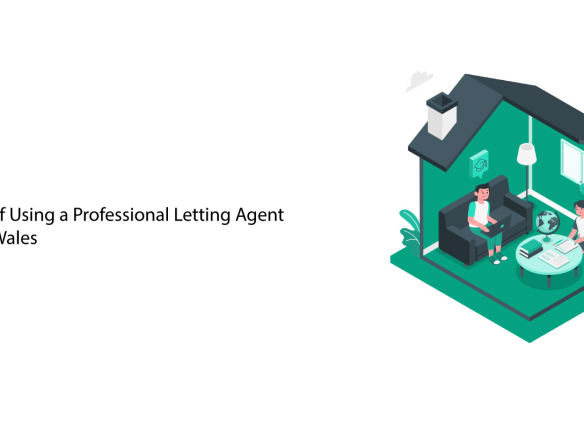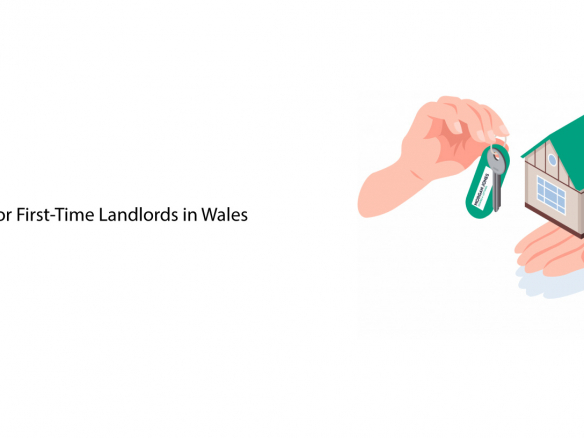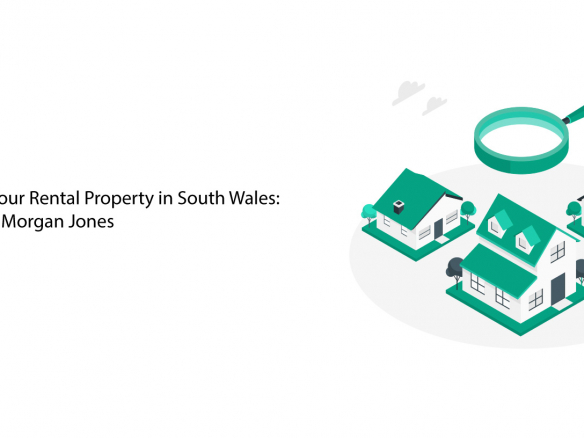The COVID-19 pandemic has irrevocably altered the landscape of housing and rental markets across the globe, bringing forth significant shifts in tenant preferences and behaviours. In Wales, as in many regions, these changes have reshaped what tenants expect from their living spaces, influencing everything from the location to the properties’ amenities.
The rise of remote work, for instance, has sparked a demand for homes that accommodate work-from-home needs, while the increased awareness of health and well-being has heightened the desire for properties with access to outdoor spaces.
In Wales, these evolving trends present both challenges and opportunities for landlords. Properties that previously met market demands may only be desirable if they adapt to these new expectations.
How the Pandemic Has Reshaped Tenant Preferences
The COVID-19 pandemic has significantly influenced what tenants look for in rental properties, reshaping the rental market landscape in Wales and beyond. Here are three fundamental changes in tenant preferences that landlords need to be aware of:

Remote Work Adaptations
The rise in remote working has fundamentally altered the dynamics of rental property demand.
More tenants are now seeking rentals that can comfortably accommodate their work-from-home needs. Here’s how this shift has manifested:
Need for Home Offices: Tenants increasingly prioritise properties that offer dedicated home office spaces. A spare bedroom or a quiet corner that can be converted into a workspace has become highly desirable. Properties marketed as having a home office setup can command higher rents and attract professionals looking to maintain productivity from home.
Preference for Quiet Areas: With the home doubling as a workplace, tenants now favour properties in quieter neighbourhoods, away from busy streets and noisy areas. Offering a peaceful living environment is a significant selling point for remote workers.
Enhanced Connectivity: Reliable high-speed internet is no longer a luxury but a necessity. Properties equipped with fibre-optic connections or other robust internet solutions are more attractive to tenants who depend on a stable connection for daily work activities.
Desire for Outdoor Space
The demand for outdoor spaces has surged as people spent more time indoors during the pandemic. Tenants now place a higher value on properties that offer access to outdoor areas, contributing to their physical and mental well-being.
Balconies and Gardens: Properties with private outdoor spaces such as balconies, patios, or gardens have seen increased demand. These spaces offer tenants a private retreat to enjoy fresh air and sunlight without leaving home.
Proximity to Parks: Tenants also seek rentals close to parks and green spaces. Living near a park provides the opportunity for regular exercise and outdoor activities, which has become a priority for many in maintaining a healthy lifestyle.
Community Amenities: Shared outdoor amenities like communal gardens or rooftop terraces can also be a significant draw, offering additional space for relaxation and socialising in a safe environment.
Increased Value on Flexibility
The uncertainties brought on by the pandemic have made tenants more cautious about long-term commitments, leading to a preference for greater flexibility in their living arrangements.
Flexible Lease Terms: There is a growing demand for flexible lease terms that accommodate changes in tenants’ life situations, such as job relocations or shifts between remote and in-office work.
Offering month-to-month leases or shorter-term contracts can attract tenants who value this adaptability.

Ease of Moving: Tenants are also looking for properties that make moving in and out easier. This includes furnished options that reduce the hassle of buying and moving furniture and properties that are move-in ready without the need for immediate renovations or extensive cleaning.
By understanding and adapting to these changes in tenant preferences, landlords in Wales can better position their properties in the rental market. Catering to the new demands of remote workers, providing desirable outdoor spaces, and offering flexible leasing options can enhance tenant satisfaction and ensure higher occupancy rates in the post-pandemic era.
Analysing Market Trends in Wales Post-Pandemic
Understanding the evolving market trends in Wales post-pandemic is crucial for landlords seeking to adapt and thrive in the current rental landscape. Below, we explore key trends in rental rates, vacancy rates, and tenant demographics that have emerged since the onset of COVID-19.
Rental Rate Fluctuations
The pandemic has led to noticeable fluctuations in rental rates across Wales, with varying impacts on urban and rural areas:
Major Cities: In major Welsh cities like Cardiff, Swansea, and Newport, rental prices initially decreased as urban tenants moved out in search of more space and lower costs during lockdowns.
Rural Areas: In contrast, rural areas such as Pembrokeshire and Powys have experienced a surge in rental prices as demand for spacious homes with outdoor areas soared.
Vacancy Rates
Vacancy rates have also been significantly influenced by the pandemic, with trends varying depending on location and property type:

Urban Shifts: During the height of the pandemic, urban areas experienced an increase in vacancy rates as many tenants moved out to reduce living costs or to find properties with better home-working facilities.
Rural Stability: Rural regions have maintained lower vacancy rates throughout the pandemic, reflecting consistent demand for properties that offer more space and a connection to nature.
Tenant Demographics
The demographic landscape of renters in Wales has also shifted due to the pandemic, impacting the types of properties in demand:
Age Groups: There has been a notable increase in young professionals and families seeking rentals in rural and suburban areas, driven by the flexibility of remote work and the desire for more space. This trend has seen the average age of renters in rural Wales decrease as more young families move in, seeking long-term, family-friendly rental options.
Singles vs Families: The preference for larger, more accommodating homes has led to a rise in family rentals compared to singles, who traditionally favour smaller urban apartments. This shift highlights the growing demand for properties with multiple bedrooms and additional living space to accommodate both living and working needs.
Out-of-City Movers: There has been a significant increase in renters moving from city centres to less densely populated areas.
Many tenants have relocated from cities like London and Birmingham to rural Welsh towns and villages, attracted by the lower cost of living and higher quality of life. This trend has fuelled demand for rentals in previously less popular areas among younger demographics.

Strategies for Landlords to Adapt Properties
Enhancing Home Office Capabilities
With remote work becoming a permanent fixture for many tenants, creating or highlighting work-friendly spaces within your rental properties can significantly boost their appeal:
Converting Spaces: If your property has spare rooms or unused corners, consider converting them into dedicated home offices. This can involve installing built-in desks, shelving, and sufficient lighting to create a comfortable and functional workspace.
Marketing Existing Spaces: Highlight any existing areas that could serve as potential workspaces in your property listings. This could include mentioning available room for home offices or quiet and well-lit spaces ideal for remote work setups.
Offering High-Speed Internet: Ensure that your property has access to high-speed internet. Providing information about internet speeds and reliable connections in your listings can be a strong selling point for remote workers.
Improving Outdoor Spaces
Outdoor areas have become a sought-after feature for tenants looking for a space to relax and recharge. Here’s how you can enhance these spaces to attract more tenants:
Maximising Gardens and Yards: Make these spaces inviting and usable, whether it’s a large garden or a small yard. Simple additions like garden furniture, plants, and clear pathways can create a welcoming outdoor retreat.

Upgrading Balconies: For properties with balconies, consider adding weather-resistant furniture and potted plants to create a pleasant outdoor living area.
Emphasise these features in your marketing to highlight the added living space.
Creating Community Spaces: If your property is part of a multi-unit building, invest in shared outdoor spaces like rooftop gardens or courtyards. These communal areas provide tenants with community and additional outdoor living options.
Implementing Smart Home Features
Integrating smart home technology can enhance your property’s appeal by offering tenants convenience, safety, and cost savings:
Remote Monitoring: Install smart security systems that allow tenants to monitor their property remotely through smartphones. These systems include cameras, smart locks, and motion sensors that increase security and peace of mind.
Energy Management: Smart thermostats and energy-efficient lighting can help tenants manage their energy use more effectively. Highlighting these features can attract eco-conscious tenants looking to reduce their utility bills and carbon footprint.
Enhanced Convenience: Smart home devices such as voice-controlled assistants, automated lighting, and smart appliances can make daily living more convenient and modern. Emphasise these benefits in your property descriptions to appeal to tech-savvy renters.
By adopting these strategies, landlords can make their properties more attractive and competitive in the post-pandemic rental market. Enhancing home office capabilities, improving outdoor spaces, and implementing smart home features are key steps in meeting the evolving needs and preferences of today’s tenants in Wales.
As we have explored, the COVID-19 pandemic has fundamentally reshaped tenant preferences and the rental market dynamics in Wales. Landlords who adapt to these new norms by enhancing home office capabilities, improving outdoor spaces, and integrating smart home features will position their properties as desirable and competitive. These adaptations are short-term fixes and strategic, long-term investments that can significantly boost your rental income and tenant satisfaction.
We encourage landlords to embrace these changes to stay ahead in the evolving rental market. By investing in your property’s appeal and functionality, you meet current demands and future-proof your investments against ongoing market shifts.
Visit our Contact Page or contact us at 01792 651311 to start the conversation. Let Morgan Jones guide you through every step of your property investment journey, ensuring success and satisfaction in the competitive Welsh real estate market.








Join The Discussion